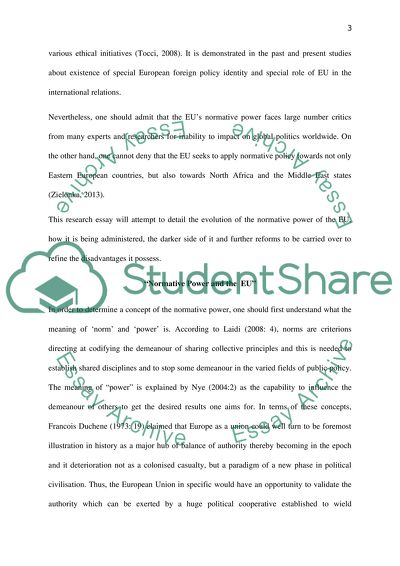Cite this document
(“A critical evaluation of normative power EU Essay”, n.d.)
A critical evaluation of normative power EU Essay. Retrieved from https://studentshare.org/social-science/1651771-a-critical-evaluation-of-normative-power-eu
A critical evaluation of normative power EU Essay. Retrieved from https://studentshare.org/social-science/1651771-a-critical-evaluation-of-normative-power-eu
(A Critical Evaluation of Normative Power EU Essay)
A Critical Evaluation of Normative Power EU Essay. https://studentshare.org/social-science/1651771-a-critical-evaluation-of-normative-power-eu.
A Critical Evaluation of Normative Power EU Essay. https://studentshare.org/social-science/1651771-a-critical-evaluation-of-normative-power-eu.
“A Critical Evaluation of Normative Power EU Essay”, n.d. https://studentshare.org/social-science/1651771-a-critical-evaluation-of-normative-power-eu.


